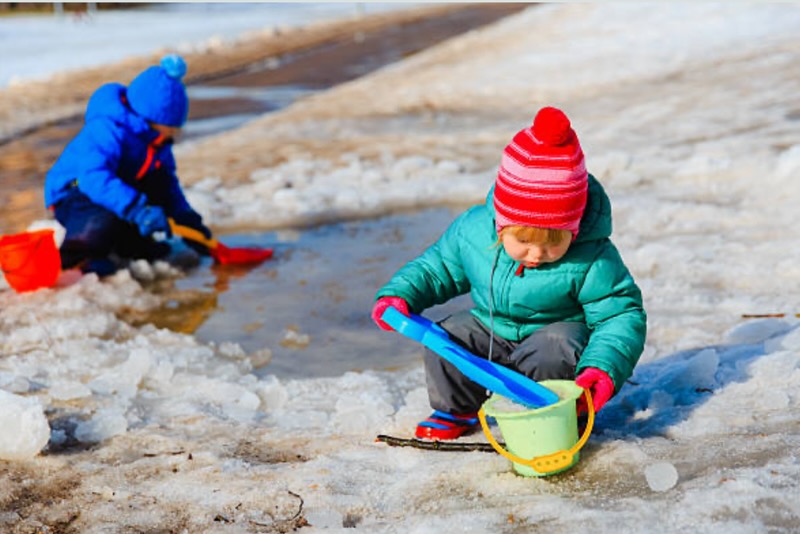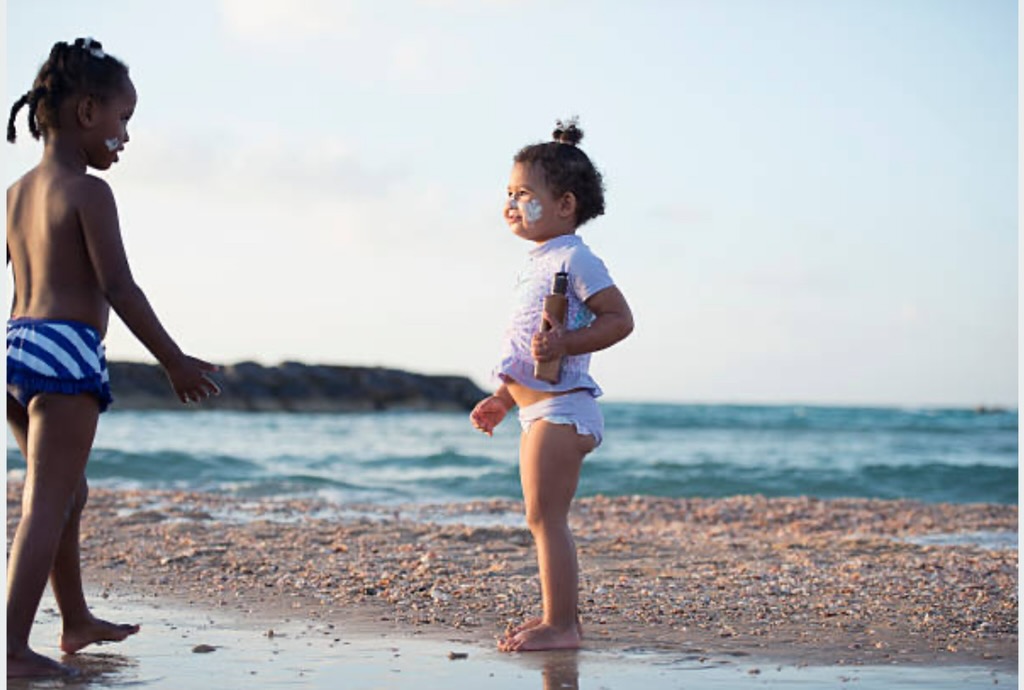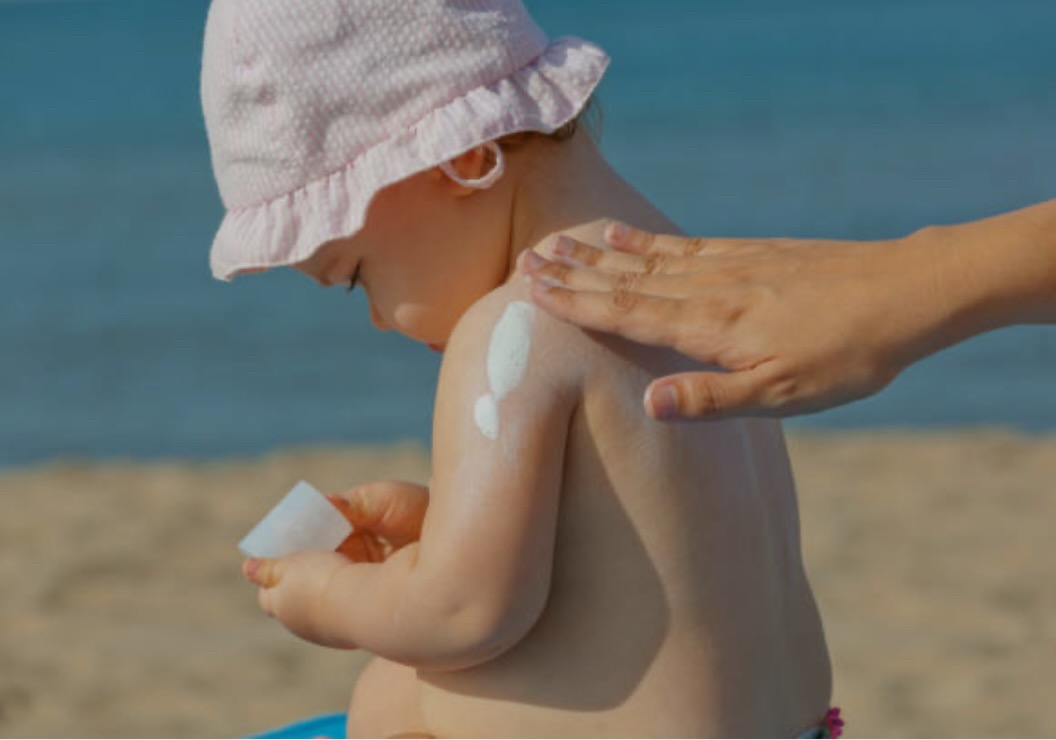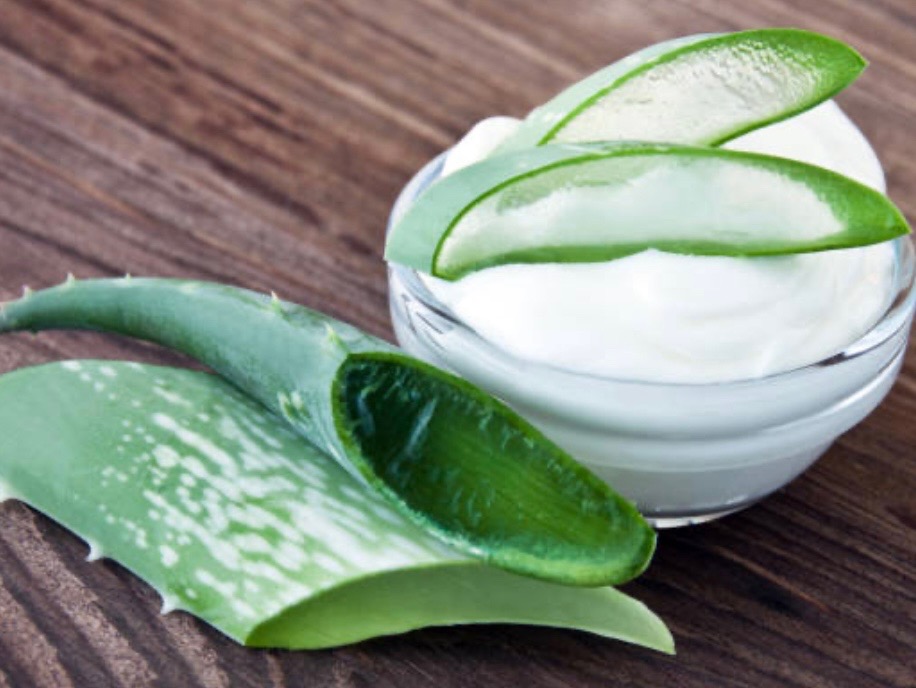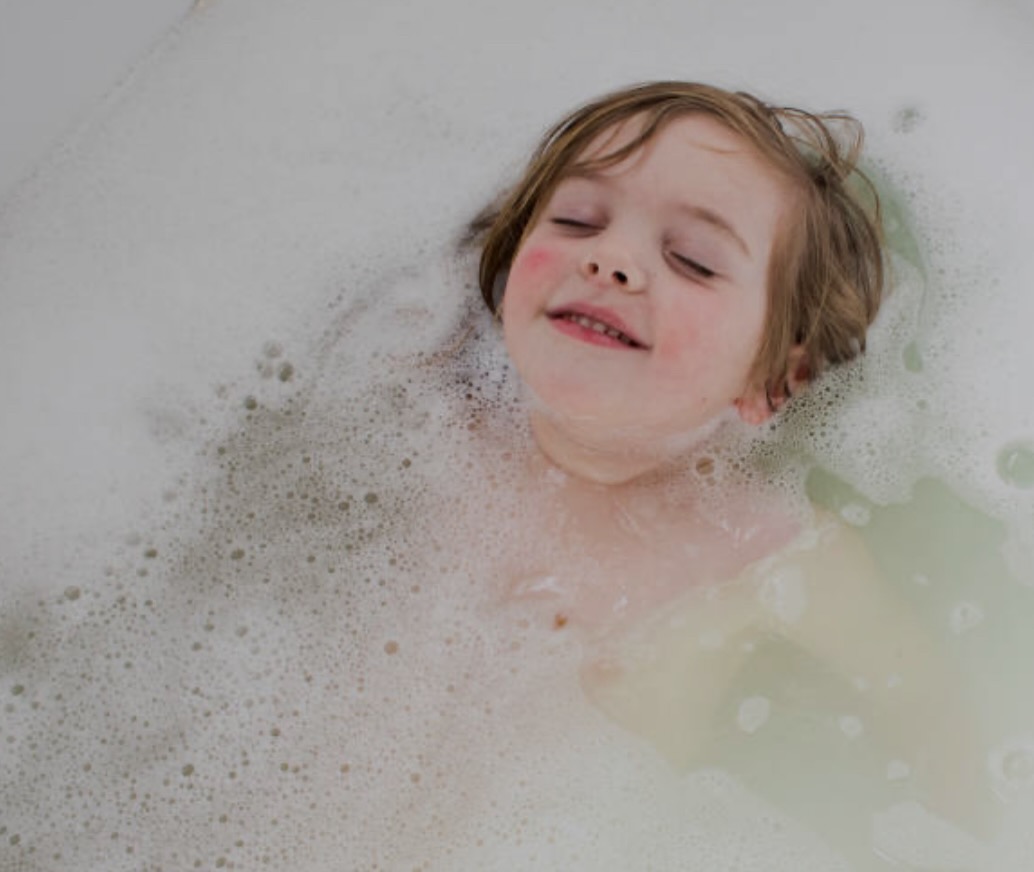The cold, dry air outside and the dry heat indoors can make kid’s and babies sensitive skin dry, red and lead to more eczema problems. Mild cleansers, gentle moisturizers and using sunscreen as well as keep moisture in the air with humidifiers will protect your skin.
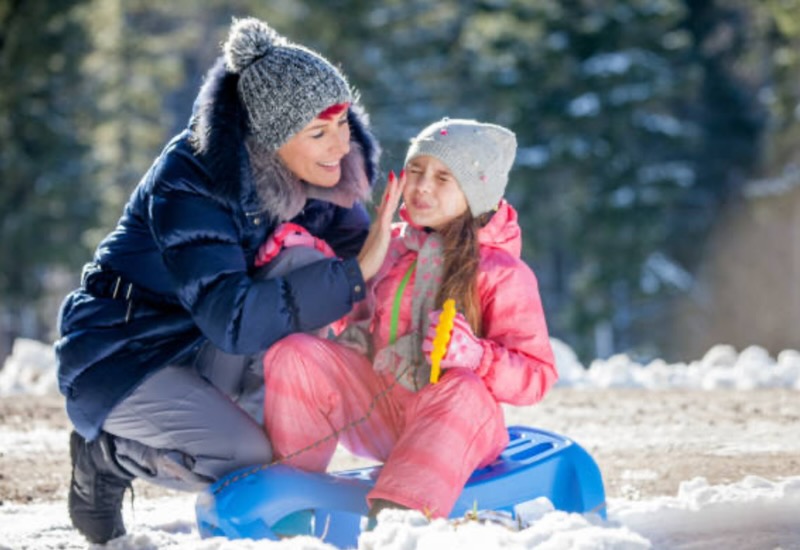
How winter weather combined with indoor heating and frequent washing can lead to common skin issues such as dryness, chapping, and eczema in kids and babies.
The coldness of winter is warmed up by sweaters and hot drinks, but this season can still be tough on children’s skin. Drop in temperature and humidity often leads parents to observe that their children’s skin becomes rough, dry, itchy or sometimes cracked. Extra dryness in winter can make the skin of babies or kids more sensitive. Their skin may become dry, sore and bothersome when they are exposed to cold air, dry heat indoor and strong winds. During cold weather, taking care of kid’s and babies sensitive skin is especially important.
In this we will look at how winter affects your child’s skin, what to do to maintain it, what doctors suggest and how to find suitable skin care items. Even parents or people who wish to help kids have healthy skin during winter.
What makes Winter Hard on Kid’s Skin
Children’s skin is easy to irritate and less protected than adults’ skin. because the sebaceous glands cut back, skin gets less oil for hydration.
Circumstances are more challenging in winter which causes recovery to slow.
• Dry Air: The skin loses moisture because of the dry air found outdoors. Heaters and fireplaces indoors remove moisture from the air and from your skin.
• Shampooing Often May Take Away Essential Oils in Your Hair. Touching the skin with wool or rough clothing may irritate those with sensitive skin.
A 2019 study in Pediatric Dermatology suggests that up to 50% of kids experience skin irritation from dry skin or eczema in the winter. A lack of care here might result in discomfort, itching or an increased risk of infection from the scratching. In the winter, kids and babies need to follow a good skincare routine. Because winter air is not moist, it pulls moisture from your skin. Setting indoor heaters makes the air drier which heightens the problem. Children have skin that is both thinner and softer which means it can dry out more quickly than an adult’s skin. Failing to watch your layering or dry your clothes on your skin can cause you to itch or get rashes. They make skin problems like dry and flaky skin, chapped lips, red cheeks, eczema breakouts and itchy or rashes skin more likely in the winter.

Pediatricians Guide to Taking Care of Your Children’s Skin in Winter
Preventing problems and using gentle care is advised for winter skin by doctors and the AAP. Dermatologists advise people to moisturize, apply protective creams and limit their time in the sun.
They recommend doing these things:
Apply a moisturizer straight after taking a bath to help your skin keep water in. Pick hypoallergenic, fragrance-free solutions to prevent causing irritation.
Watch the bath temperature to be on the cooler side. Let kids wear easy-to-take-off layers made from soft materials, rather than having wool next to their skin and Placing a humidifier indoors for the kids will help prevent dryness in the air.
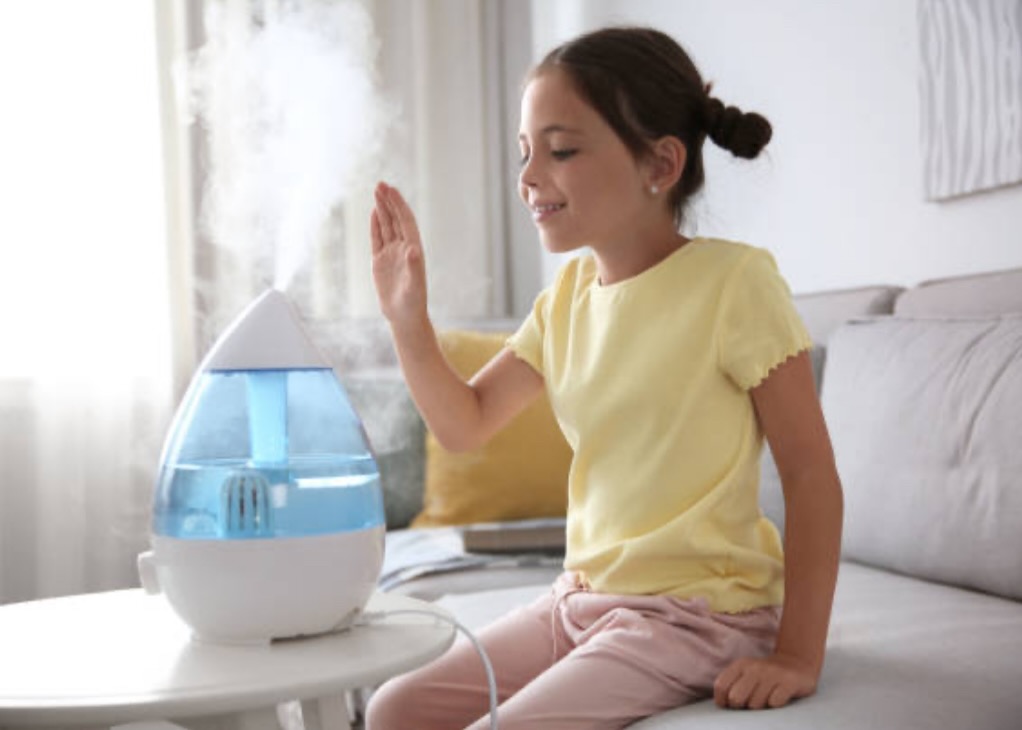
Why Your Child’s Skin Needs Extra Care in Winter
Helps to avoid Dryness and Cracking
Skin tends to dry out in winter, mostly seen on kid’s cheeks, hands and lips. If skin becomes too dry, it may crack which is uncomfortable and lips turn dark around the area. Apply the lip balm and Moisturizers help keep moisture inside and defend the skin’s natural barrier. The American Academy of Pediatrics (AAP) suggests that using moisturizer daily lowers dryness in children by up to 70%.
Halts excess dryness and improves symptoms of Eczema
Having eczema is common for kids because it causes their skin to become red, itchy and inflamed. Because of the drying air and changes in temperature, winter makes the condition worse. The journal study from Journal of Clinical Dermatology (2020) revealed that using emollients regularly diminished flare-ups of eczema in kids by 60%. Specific skin care items can alleviate irritation and prevent flares.
Prevents the Skin from Being Chapped
Dealing with chapped hands and lips is difficult for kids during winter. A lot of lip licking or exposure to cold air can cause them to be sore and tender. These areas are protected and stay soft if you use lip balms and hand creams. Maria informed me her son’s lips were getting dry and flaky in winter until they started using a fragrance-free lip balm and things got much better after that.
Makes infections less likely
Sometimes dry, cracked skin allows bacteria or fungi to enter which can cause infections. Babies are most at risk because their skin is very sensitive. A report from Pediatrics in 2018 indicated that when the skin is regularly moisturized, there is less risk of infections because the skin’s barrier is maintained.
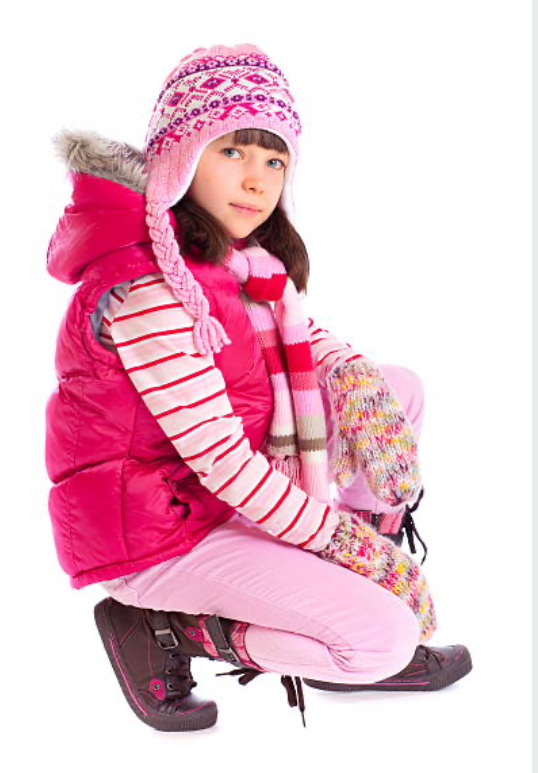
Keeps Kids Comfortable
Itchy, dry skin can make kids fussy and uncomfortable. A good skin care routine helps them feel better, sleep well, and enjoy winter activities like building snowmen or sledding. It also gives parents peace of mind knowing their little ones are protected.
Special steps for keeping children’s and babies’ skin safe in winter
you’ll find some easy recommendations from doctors for keeping your children’s skin healthy this winter:
Make sure to Moisturize your skin, Good winter skin care starts with moisturizing your skin. Choose a thick, unscented cream or ointment (such as petroleum jelly or those made with ceramides), instead of thin lotions that might not trap in moisture as well. Same as the first question: remember to put it on your child twice daily, following bathing and before going to bed.
Since skincare products are not to be made on an irritable baby, select hypoallergenic products. The American Academy of Pediatrics (AAP) recommends moisturizer applied 3 minutes after a bath because it is ideal to trap the moisture and avoid loss. Among the most reliable, recommended by dermatologists baby moisturizing products, CeraVe Baby Moisturising Lotion due to the extensive hydrating properties featuring ceramides, Cetaphil Baby Daily Lotion due to its lightweight hydrating effects, Aveeno Baby Daily Moisture Lotion amplifying soothing oat extract, and Aquaphor Healing Ointment preventing dry and sensitive spots.
Choose cleansers that are gentle and in a fragrance-free version.
Frequent hot baths and tough soaps can cause kids’ natural oils to be removed. Choose lukewarm water and a cleanser that is scent-free and created for people with sensitive skin. Make bath time no more than 5–10 minutes and remember not to scrub excessively. A 2021 study in Dermatologic Therapy showed that normal pH and scentless cleansers can reduce skin irritation for kids by 40%.
Look After Lips and Hands
Chapped lips and dried hands often happen in the winter. A lip balm with shea butter or beeswax and no fragrance is best for you. Before going outside and after washing your hands with soap, put on a thick cream for your hands. Babies should have a small amount of petroleum jelly dabbed on their lips when their lips feel dry.
To keep kids comfortable, choose cotton clothing over wool which can be too harsh. During outdoor play, wear mittens, maintain warmer fingers compared to the gloves as they warm your child together through body heat and are easy to put on restless toddlers, scarves and hats to prevent your skin from the cold and wind. Make sure you dress infants in UPF clothing outside since skin can still be affected by the sun during winter.
Apply Sunscreen (Don’t Forget It, Even When the Temps Drop)
Even during winter, UV rays don’t stop and in places covered in snow, the sun reflects more off snow. Always put broad-spectrum sunscreen (an SPF of 30 or more) on the exposed areas like your face and hands. The Skin Cancer Foundation suggests using mineral sunscreens containing zinc oxide on kids.
Try to Maintain Indoor Air at a Proper Humidity
Indoor heaters and dry winter air can make your child even worse off since it all takes moisture away. Take steps by putting a cool-mist humidifier in their bedroom to ensure that the air is at a comfortable humidity level. American Academy of Pediatrics (AAP) advises the humidity level should be kept at 30 to 50 percent in the house. your humidifier should be cleaned periodically to prevent bacteria growth. I have tried Pure Enrichment MistAire Ultrasonic Humidifier and it was easy to clean, auto shut-off feature, and Vicks Filter-Free Cool Mist Humidifier a Trusted brand, visible mist, no filters.
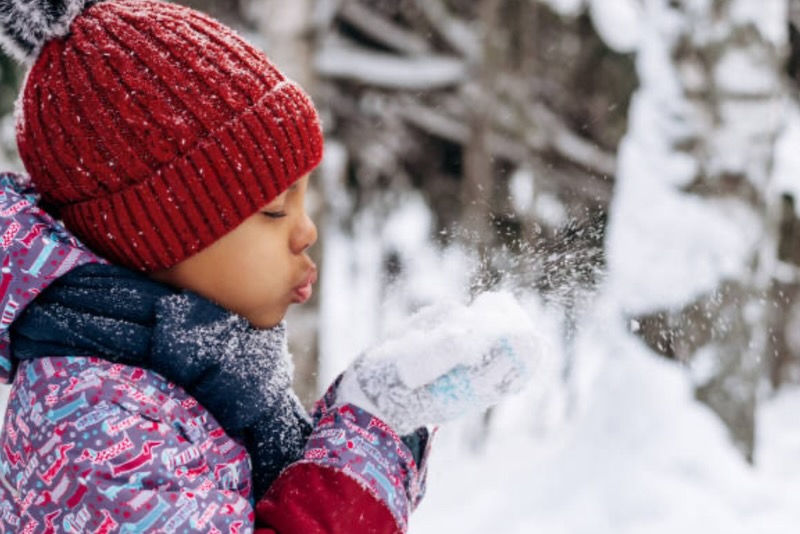
Maintain awareness of when Eczema flares up.
Winter weather can often bring on a flare-up in your child with eczema. If your skin doctor suggests using a prescription cream (such as a low-dose steroid), begin with that and put it under a moisture. Avoid anything that might choosing the Right Products
When picking skin care products for kids or babies, try to find ones that have:
Made Without Fragrances or Hypoallergenic: They usually irritate the skin less. Thick creams or ointments are more effective at keeping moisture in your skin.
Lots of pediatrician’s trust brands such as CeraVe and Eucerin.
Consider Shea butter, aloe or calendula as natural ingredients for a soothing effect. Show your skin kindness by avoiding products that contain alcohol, dyes or strong scents, since they may not be good for dryness.
Things You Should Avoid Doing
Bathing frequently or with very hot water dries out the skin of your scalp.
Skip Moisturizer: Even with a nice skin, regular moisturizing keeps skin in good shape.
Adult Products: Adult creams may cause skin irritation for kids.
Paying little attention to early signs like redness or itching can lead to more complications. Getting Medical Help Dealing with winter skin problems are possible at home, though seek medical help if: There are signs of skin redness, cracks or bleeding noticeable.
If the irritation and itching are very intense and nothing helps reduce it.
These infections are noticeable because pus can build up, there may be swelling, or you might have a fever. It’s usually evident after a few days that home care isn’t working on eczema.
Winter can dry out kid’s and babies skin, but using a simple routine can help a lot. Keep your pet’s skin soft, healthy and comfortable by often moisturizing, using gentle soaps and protecting them from the elements. The Pediatrics journal study carried out in 2022 indicated that if children are moisturized regularly, their winter skin troubles may be reduced by up to 65%. Stock some great moisturizing cream, avoid long showers and your children will have fun in the winter with less itchy, dry skin!
Please note: This material and the content and information in it contains are not intended to, and do not constitute, medical or other health advice or diagnosis and should not be used as such. Consult an experienced doctor or healthcare provider for some of the issues in your individual situation.
